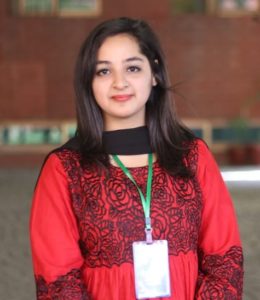By Hina Haroon
The world, which is a global village, has become so digitalized that we are aware of what is happening around the globe. In a world where some powerful nations talk about peace and call themselves peacemakers, the recent events in Gaza have revealed their failure in this role. These events have exposed that their speeches about security and peace were nothing but empty words.
Over the past few months, a nation has been crying for help—a nation where the number of deaths has exceeded all bounds, where people go to sleep only to wake up to more despair. The population is exhausted to their very core—exhausted from asking for help, exhausted from pleading for a ceasefire. Yet their cries and screams go unheard by those who claim to be the peacemakers.
Today, we have not just failed as humanity; we have failed as individuals, as nations, and collectively as a global community. In the Quran, Allah says, “Whoever kills an innocent person it is as if he has killed all of humanity.” — [Quran 5:32] Isn’t this the case with all of us? Aren’t we dead as humans? As individuals? Aren’t we dead as a global community? I believe the answer is yes.
All those Palestinians who lost their lives are martyrs, as the Quran states: “Never say that those martyred in the cause of Allah are dead—in fact, they are alive! But you do not perceive it. Do not say that those killed in God’s path are dead; they are alive, though you do not realize it.” They are alive because we as humans are dead; our humanity is dead.
We are the true examples of living dead people who think, speak, walk, and talk, yet we can’t do anything. There are people out there who still stand with those who are killing innocent lives, those who are killing babies and infants, and I say humanity is dead. This is where it dies.
The number of deaths is increasing every day. The world is crying for help. The world is crying for a ceasefire, and all those efforts, those cries, have been in vain because those who can help are with those who are killing innocent lives.
Imagine living in Rafah? Imagine your life there. Can we? As humans, we can’t see the images and videos coming from Rafah—by now, we have seen a dead infant without a head, a mother carrying her dead babies in her arms, a father carrying his dead babies, a dead pregnant woman. What else does this world want to see? What else is going to make those dead people alive so they can help? What else will make them call for a ceasefire? Because we have done everything that was in our hands—we have protested, we have boycotted, we have reshared the images, we have made the world know what’s going on in Gaza, and yet our cries and their cries are nothing but a sound to those who can actually help.
The question we ask ourselves every day is: When will this end? When will their suffering finally be over? When can they live a happy life in their own country? When can a child roam around without the fear of being murdered? When can a mother send her children out to play? When can they sleep without the fear that they won’t be able to wake up?

Note: Having a degree in Mass Communication, Hina Haroon is a promising young journalist who focuses on the socio-political landscape, Women Empowerment, and Public Diplomacy.
